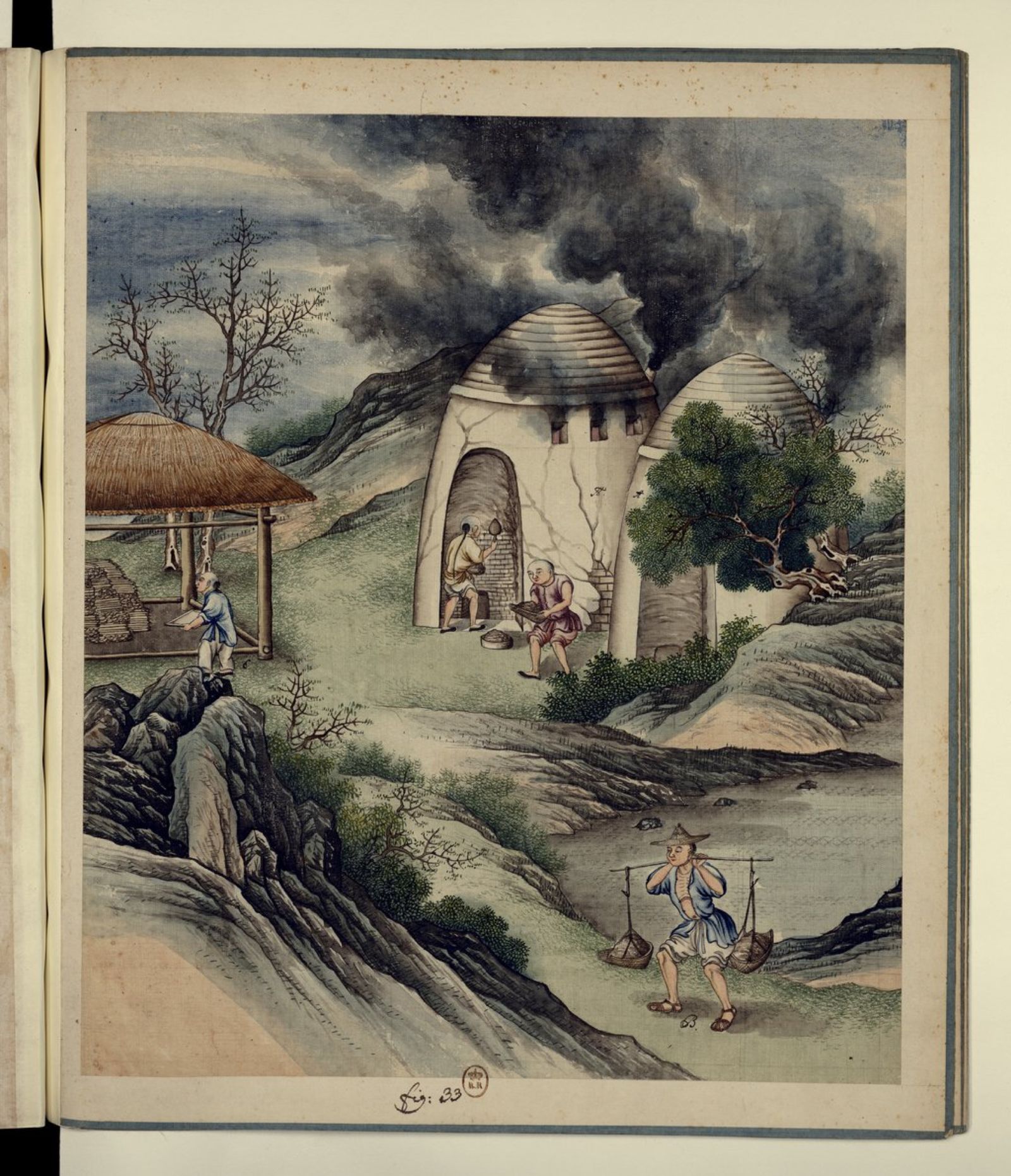Research
The Environmental Crisis of Porcelain: Energy Consumption, Deforestation, and Waste in Early Modern Jingdezhen
Feng Schöneweiß

Drawing of men sealing the entrance of burning kilns while leaving a ground-level opening to add firewood. Fabrication et commerce de la porcelaine [manufacture and trade of porcelain], folio 33, ink and color on silk, mounted album, seventeenth to eighteenth century. Bibliothèque nationale de France, artwork in public domain.
This project is an ecological art history of global material culture, revealing the destructive power of fragile collectibles. Historians have long demonstrated Jingdezhen porcelain as one of the earliest global commodities by mass production. In the early eighteenth century, some three thousand active porcelain kilns in Jingdezhen maintained a population of over one million people working in various sectors of the industry, providing more than 100 million pieces of luxurious and everyday porcelain for the European market, in addition to a larger amount for the Asian, North African, and Chinese domestic markets. Through the nineteenth century, however, the township had declined in multiple ways—irreversible deforestation for firewood and farmland, deteriorated soil and water systems, and exhausted reserves of clay and porcelain stone—an environmental crisis was looming large over the porcelain capital of China.
How did the porcelain manufacture in Jingdezhen consume enormous amount of energy to meet the transregional and global demands for its products, eventually leading to a devastating environmental crisis? How did local and transregional actors in entangled knowledge systems creatively yet unsuccessfully tackled the crisis? Through the analytical lens of energy consumption, the project examines an ecological art history of porcelain production in Jingdezhen, China, from the fourteenth to the nineteenth century. The project will address the urgency of integrated methodology in environmental humanities, showcase the nuances of ecological art history in a transcultural context, excavate the indigenous creativity in dealing with environmental and climate crises caused by early globalization, and shed light on the ecological cost of one of the commonest collectibles in public and private collections.
This project is part of the Research and Fellowship Program 4A Laboratory: Art Histories, Archaeologies, Anthropologies, Aesthetics, a cooperation between the Kunsthistorisches Institut in Florenz and the Stiftung Preußischer Kulturbesitz.


